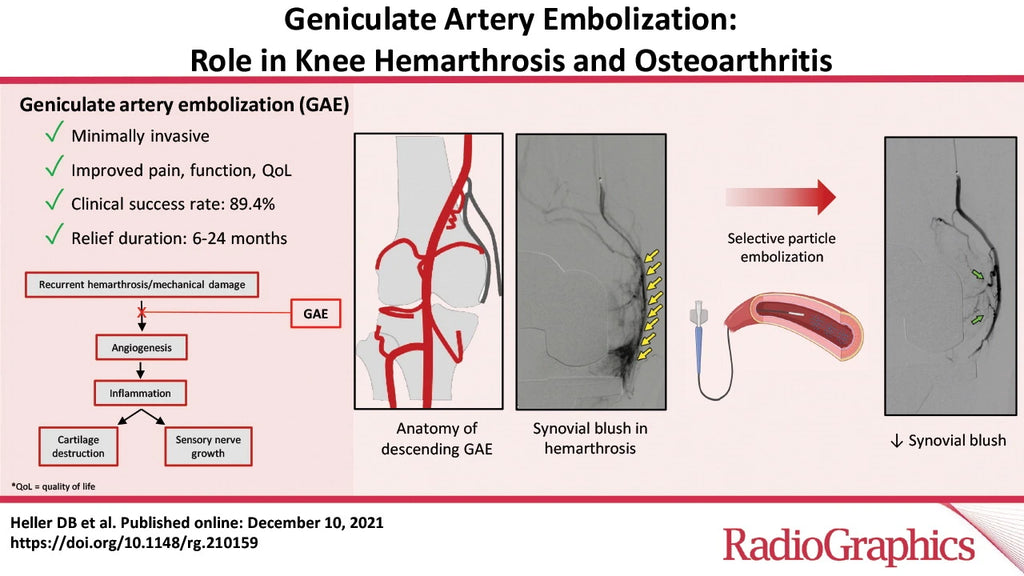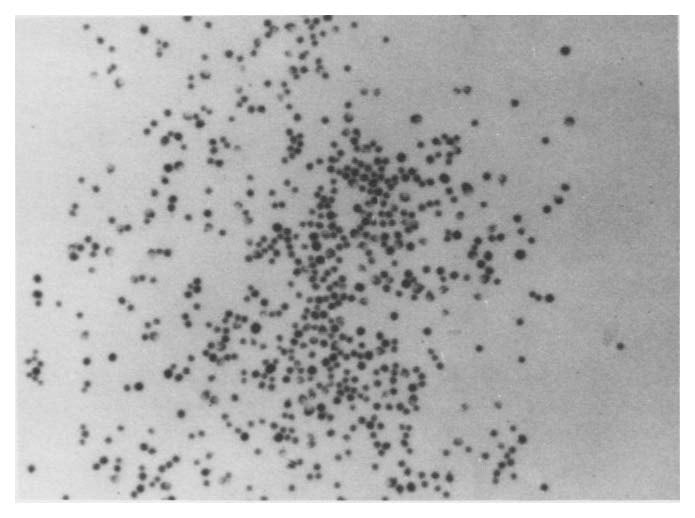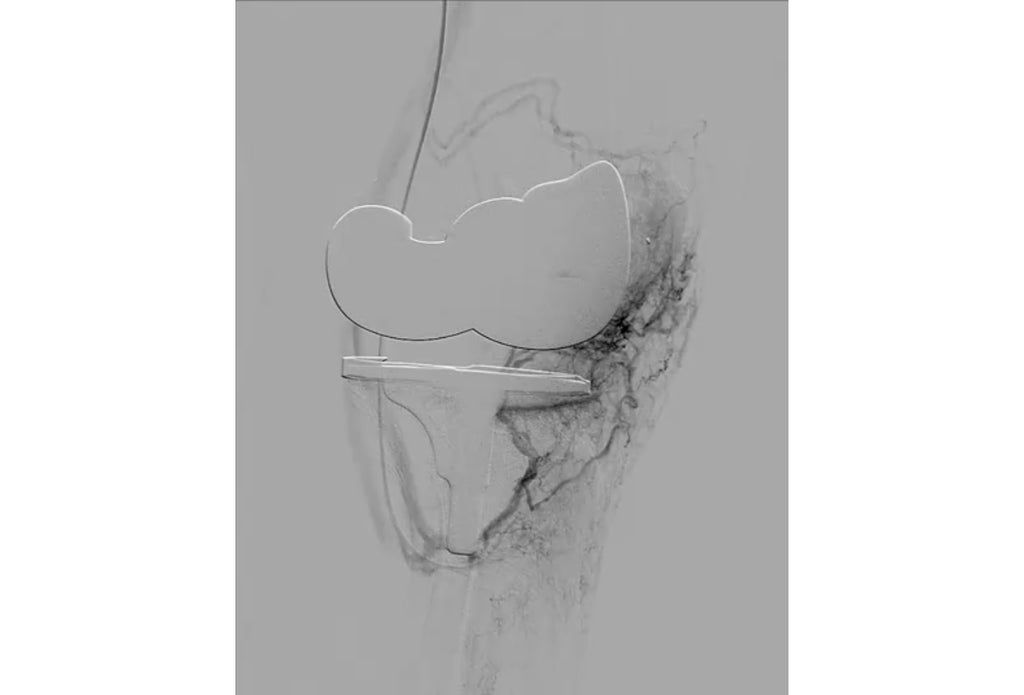Geniculate Artery Embolization for Knee Pain Relief
Geniculate artery embolization is a cutting-edge treatment option for chronic knee pain; a condition that affects 32 million Americans each day.

What is geniculate artery embolization?
Geniculate artery embolization (GAE), or embolization of the knee, is a cutting-edge, minimally-invasive medical procedure. It is designed to alleviate knee pain from osteoarthritis.
Improvement in pain scores have been demonstrated to decrease from 8/10 to 3/10 in as little as a week!
This allows us to provide our patients with long-term relief and minimal side effects from a single session of treatment.
The GAE procedure helps someone with osteoarthritis; a degenerative type of arthritis that happens after years of wear and tear on the joint. The latest osteoarthritis research suggests that the pain itself is mediated through a chronic inflammatory process, of which angiogenesis (growth of blood vessels) plays a key role.
Geniculate artery embolization works by eliminating these abnormal blood vessels, thereby reducing inflammation and alleviating pain.
What to expect from geniculate artery embolization
The procedure takes about an hour, and is performed by an interventional radiologist—a licensed physician who has undergone advanced training and obtained American Board of Radiology Certification to become a specialist in this field. An interventional radiologist uses X-rays and other imaging technology to see inside your body and to treat diseases without undergoing invasive surgery.
The interventional radiologist will insert a small tube into a groin artery that eventually supplies the knee. Then your doctor will use X-rays to guide the tube to the arteries surrounding the knee before injecting tiny particles (called microspheres) into smaller arteries that supply blood to the knee joint.

The result is less swelling in the synovium, the soft lining of the knee, while reducing inflammation of the joint.

One important thing to remember is that geniculate artery embolization is a pain-relief treatment. It does not rebuild any cartilage damage to the knee or prevent bone spurs, which are the underlying causes of osteoarthritis in the knee.
It reduces inflammation so you can have better movement in the joint and improved quality of life.
What is recovery like after GAE?
This embolization is an outpatient procedure, which means you go home the same day of treatment!
The average patient sees a reduction of pain score from 8/10 to 3/10 in as soon as a week, but improvement in symptoms continues over the coming weeks and months. Your interventional radiologist will guide you every step of the way with your recovery.
Are you a candidate for geniculate artery embolization?
Knee pain affects around 32 million Americans every day! Many doctors prescribe geniculate artery embolization to their patients because of the following advantages:
- Outpatient (same-day) procedure, thus
- No overnight hospital stays
- Minimal post-procedural pain
- No prolonged recovery period
- Minimally-invasive
- Does not preclude you from subsequently having any other procedure or surgery
- May help reduce reliance on pain medication
Who are ideal candidates who could benefit from the GAE procedure?
Those with the following symptoms may benefit from this procedure:
- Diagnosed with osteoarthritis (OA) of the knee
- Diagnosed with degenerative joint disease (DJD) affecting the knee
- Pain in one or both of your knees, especially making it hard to get around without assistance
- Pain in your knees when walking up the stairs
- Stiffness in your knees when you wake up every morning or some mornings
- You have persistent usage-related knee pain when consistently using the joint
- Conservative treatments, like physical therapy or joint injections, either diminish over time or fail to work at all
Who can help me with knee pain & geniculate artery embolization in Los Angeles?
The doctors at LA Imaging & Interventional Consultants can discuss your options with you, determine if you are a good candidate for geniculate artery embolization.
We can assess your knee joint to determine the best treatment option, and you can find us below:
Schedule an appointment with us today. We understand that you want to be pain-free as of yesterday, and that you would rather not undergo surgery if at all possible.

